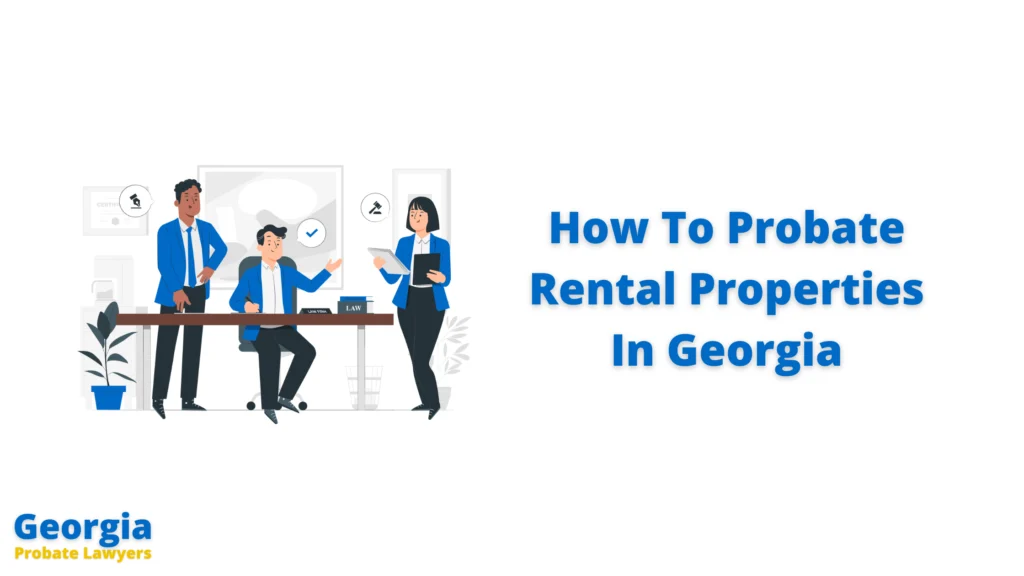
Overwhelmed trying to figure out how to probate rental properties in Georgia?
Probating rental properties can feel like a lot—but with the right steps, it’s completely manageable.
If you’ve been named as executor or are helping a loved one, this guide will walk you through every task.
From court filings to rent collection, we’ve got you covered.
Avoid the delays, expenses, and public exposure of probate.
Schedule your free, no-pressure Estate Planning Roadmap Call today.
"*" indicates required fields
Probate is the court-supervised process used to transfer property after someone dies.
If a person owned rental property in their name only (not in a trust, LLC, or jointly with someone else), probate is legally required before you can manage or sell it.
Here are the steps for probating an estate with a rental portfolio.
Action Tip: File quickly to protect the estate from unpaid bills or mismanagement.
After the court approves your petition, you’ll receive:
These give you legal authority to act on behalf of the estate.
Action Tip: Request 5–10 certified copies of your letters. You’ll need them for banks, tenants, utility providers, and title companies.
Once appointed, send a written notice to tenants:
Action Tip: Open an estate bank account in the name of the estate. Deposit all rental income here and pay all property expenses from this account only.
Create a full list of the deceased’s assets, including rental property.
Action Tip: Even if you’re not required to file an inventory, keep one for your own protection.
You must pay all estate debts before distributing property to heirs.
Action Tip: Keep detailed records. Save every receipt, invoice, and bank statement for court filings and to avoid personal liability.
Some counties require you to file an interim report showing how you’ve handled estate funds and property.
Action Tip: Ask the court clerk if your county requires interim accounting so you’re not caught off guard.
Disputes between heirs or issues with tenants can slow the process.
Common issues:
Action Tip: Communicate early and clearly. If things escalate, bring in a mediator or probate attorney.
Once debts are paid and the court approves final distributions:
Action Tip: Use a lawyer or title company for deed prep. Errors can cause future title problems.
Yes, you can collect rent—but do it by the book:
Tip: Rent can be used to pay property bills or other estate debts, but you must wait for court approval before distributing profits to heirs.
Here are questions people ask us when trying to figure out how to probate real estate.
Yes, but you must follow Georgia’s landlord-tenant laws. Make sure you have legal authority first (via your letters).
Yes, unless the will clearly gives you that power. Always check with the court before listing.
The mortgage must still be paid. Use rental income or other estate funds to stay current during probate.
Yes, if the property was held in a trust, LLC, or with joint ownership with right of survivorship, it may not need to go through probate.
Probating rental properties in Georgia takes time, but it’s not impossible. Stay organized, follow each step, and don’t try to do it all from memory. The key is to:
With this guide, you can protect the property, follow the law, and get the estate settled the right way.
Need help figuring out how to probate real estate in Georgia?
Fill out the form below.
Avoid the delays, expenses, and public exposure of probate.
Schedule your free, no-pressure Estate Planning Roadmap Call today.
"*" indicates required fields
Our Georgia probate lawyers work remotely, so you don’t have to visit an office. Here are all the counties we serve in Georgia.